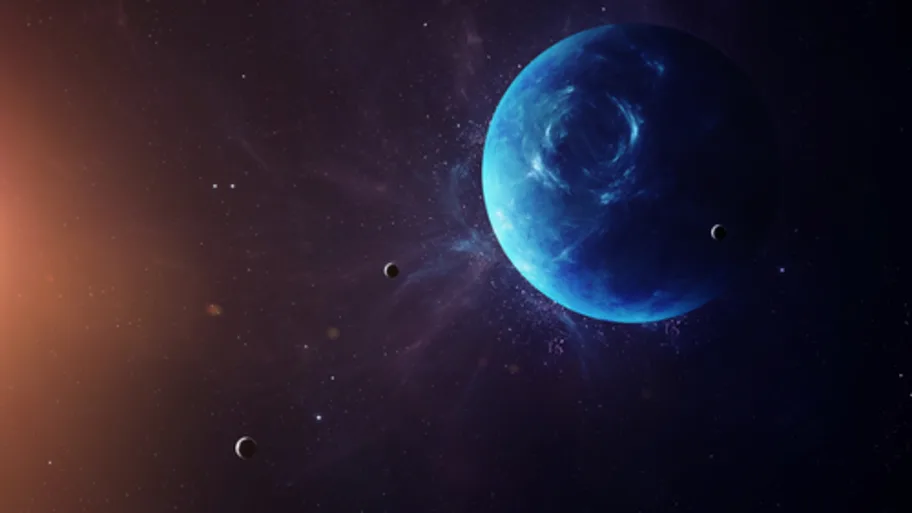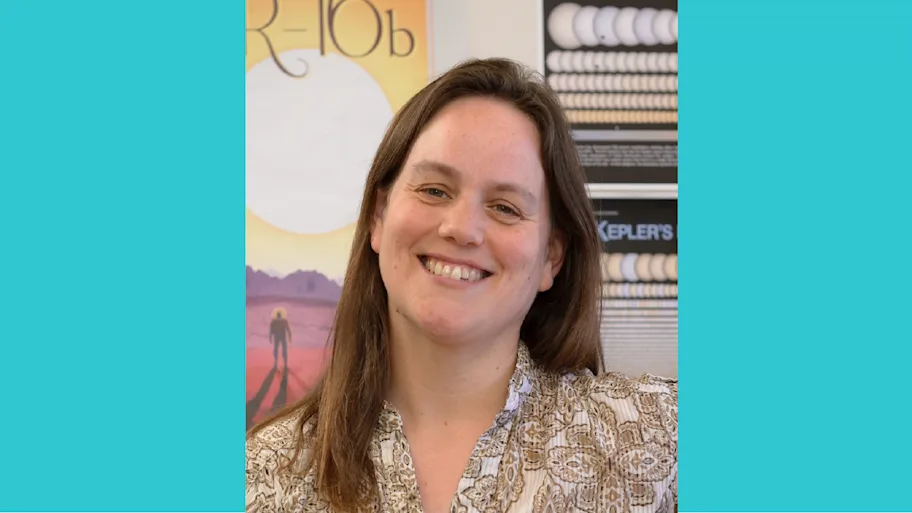
- Science news
- Frontiers news
- Miriam Rengel – Women in space
Miriam Rengel – Women in space
Author: Leticia Nani Silva
Space has always been a massive curiosity of mine as a scientist. Despite my interests in biology and human behavior shining brighter in my career, my interest in space and astronomy has always lived in the background. This is why when I got the chance to speak to one of the leading researchers in the field of planetary science and astronomy, my enthusiastic and curiosities knew no boundaries.
This week, I had the pleasure of speaking with Dr. Miriam Rengel, a researcher at Max Planck Institute for Solar System Research in Göttingen, Germany. Her research focuses on the atmospheres of solar and extrasolar planets and Infrared astronomy. Dr. Rengel has led several observational programs in world-wide facilities including the NASA/DLR airborne telescope SOFIA to observe the atmosphere on Saturn’s moon Titan, and is involved in the ESA mission JUICE to investigate Jupiter and its Galilean moons. In this interview, we focus on both her achievements as a woman in astrophysics research, and also take a trip down memory revealing the origin’s of Dr Rengel’s curiosity and passion for space.

Dr. Miriam Rengel (photo credit: Dr. Lucas Paganini)
Bridging the Gap
“There is a clear disparity when it comes to women in the field of space and astrophysics. It is a predominantly male-led field,” Dr. Rengel explains. “However, that over the past few years there have been extreme considerable efforts put into recruiting more female scientists to represent the field. Despite the efforts, the higher the level of academic range, the fewer and fewer women we see in positions of power and leadership.”
Dr. Rengel comments on the fact that this gap is significant, but it is important to understand the root of the problem. Many women who are ready to move up in their career find themselves ready want to progress in their personal lives, i.e. have children, build a family, buy a house, etc. It seems as if all major life decisions come at the same time for women, and not necessarily for men. There are also sometimes career barriers and access restrictions to various resources and opportunities that would be helpful in advancing a scientific career (e.g., invitations to speak, supervision and leadership assignments, serving on committees that have influence, editorship of journals, etc.).
“One of the great achievements in this system now is our ability to train women to be better negotiators, among other initiatives. Some companies and institutions are offering courses, working groups, mentoring for women to learn how to lead a negotiation, come up with compelling arguments, and also find their voice when it comes to not only negotiating their academic position or compensation but also their maternity leave and extended wellbeing time-off. When it comes to making those difficult decisions, women are more equipped to make counteroffers and negotiate their terms and conditions to those that suit their change in lifestyle better. This is a step in the right direction, but more is needed in terms of successful retention policies considering promotion prospects, job safety and family support, and in society’s overall understanding of the female timeline along with their ambitious career goals,” argues Dr. Rengel.
A Latina Woman in Science
Both coming from South American countries, Dr. Rengel and I focus on celebrating our achievements and our pride in being Latina women within the scientific community. Despite our efforts and strong academic background, we both agree that being the minority when working abroad means that we have to try even harder to show what we are capable of. There is a sense that we need to try harder, do more, and prove to others and ourselves that even though we are the minority, we deserve not only a seat at the table but the right to speak up amongst the group.
Dr. Rengel feels that, as women, we are in some cases under observation by our colleagues with regard to what we say and how we behave. However, we can also use this exposure to our advantage, when generating innovative ideas and suggestions. Because we are under a constant spotlight, when we do achieve something great, it is noticed.
In the Latin community, there is a certain warmth and passion to our interactions with one another and those around us. This warmth, is not always usual to all scientists or within the scientific community, as scientists are consistently viewed as purely focused, logical and completely rational human beings. However, as we both discuss, this warmth is what scientists are fueled by and what allows us to be creative, engage with the community a little more, as well as amplify our ‘human-selves’. Networking is an important part of science and everyday life. Science is critical thinking and studying nature, but requires inclusivity, thinking outside the box, and open communication. Sometimes this ‘warmth’ is the kind of fuel needed to spark our curiosity and come up with answers to the world’s most complex questions.
The curious kid that lives inside us all

Dr. Miriam Rengel (photo credit: Dr Robert Minchin)
We spent a little bit of time taking a trip down memory lane. I asked Dr. Rengel whether there was a moment in her early life when she knew she wanted to become a space scientist or astrophysicist.
“I used to lay down on the grass at nights and in the early mornings in Venezuela and look up at the stars and the sunrise. One of the highlights of driving to see my grandmother was passing by huge telescopes and domes in the Venezuelan Andes. They were fascinating. I kept looking at them and dreaming about becoming a professional astronomer so that one day I could sit there and observe objects that we cannot see with the naked eye. It’s brilliant how we can use tools and instruments in science that allow us to see the macro-universe using a telescope, and the micro-universe, using a microscope. This curiosity that lives inside of us should never go away. It fuels our fire and passion for science,” DR. Rengel explains. “When we are children, everything is fascinating and we have so many questions about everything. Sometimes, as an adult, we choose to ignore the questions and just accept the answer for what it is. Bringing that curious kid back into our lives allows us to keep asking the simple and the complex questions, and not just settle for an answer.”
Advice to the young astrophysicists
We discussed the importance of encouraging younger women to lead a career in STEM, and in particular, what kind of advice we can give to keep them on the path towards a strong professorship within the field of astrophysics. Dr. Rengel’s advice would be to “identify both your professional and personal goals, monitor them, and work hard to achieve them”.
“These goals can change over time, however, your curiosity should always remain the same. Curiosity alone will not guarantee jobs in today’s society, but it will definitely keep you motivated to keep pushing for answers to the most complex questions, and motivation and hard work will always guarantee a spot at the table.”
Open Access Space Research
We finish off our discussion by talking about how Open Access science is the future for not only space research, but all research out there. There is a consistent need for scientists to be publishing their work in Open Access journals, so as to propagate knowledge further and further. We also share the common consensus that we need to keep informing the public using not only Open Access journals but also mainstream social media channels. Today, research is everywhere, and there is more access to information than ever before. However, critical thinking should always be used to assess the credibility of information. We come to the conclusion that it is important to publish your research and also take the time to share it with the wider community. We need to encourage the next generation to use the correct information to make decisions regarding our future so that all of us can live healthy lives on a healthy planet.

Frontiers is a signatory of the United Nations Publishers COMPACT. This interview has been published in support of United Nations Sustainable Goal 5: Achieve gender equality and empower all women and girls.






